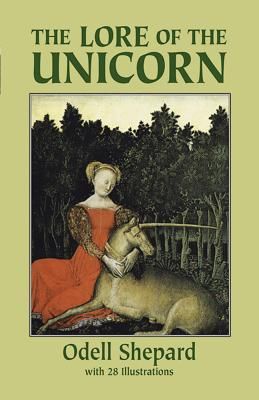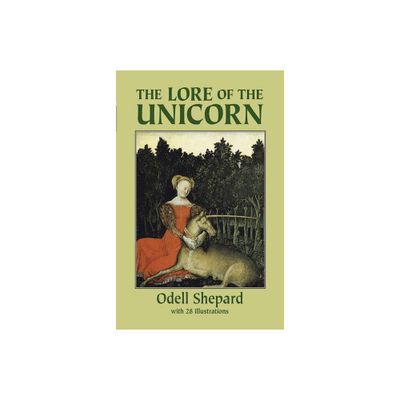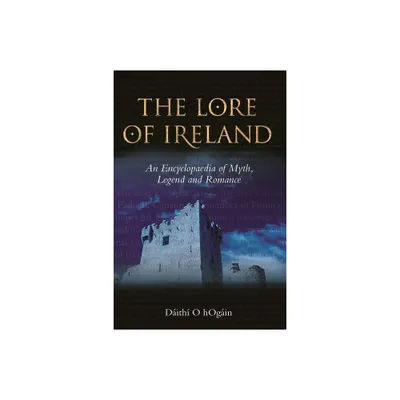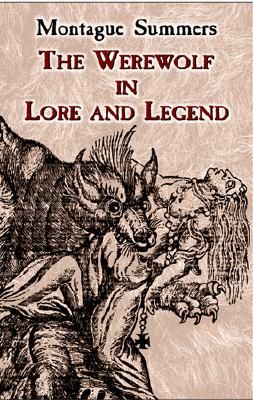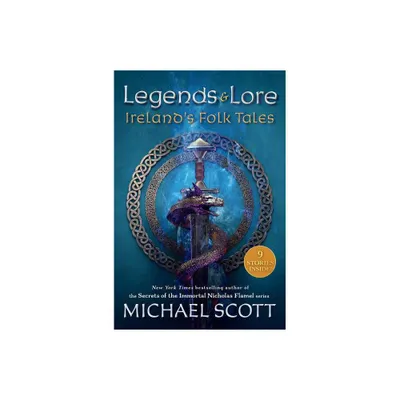Home
the Lore of Unicorn
Loading Inventory...
Barnes and Noble
the Lore of Unicorn
Current price: $24.95


Barnes and Noble
the Lore of Unicorn
Current price: $24.95
Loading Inventory...
Size: Paperback
*Product Information may vary - to confirm product availability, pricing, and additional information please contact Barnes and Noble
“His book shows scholarly knowledge on every page. But it is written with relish, with urbanity, with the vividness that belongs to an eye which has become accustomed to a very strange and very interesting landscape.” — Padraic Colum,
New Republic.
Although the origins of the unicorn legend are shrouded in the mists of early history, the myth has persisted for over 2,000 years and its symbolic and allegorical meanings have remained potent in art and literature to the present day. Unicorns are mentioned in the Old Testament, by Greek and Roman authors, in the literature of medieval Christianity, as well as in the cultures of Islam and China.
In this erudite, urbane, and highly readable book, a noted scholar traces the development of all the various aspects of the unicorn legend in mythology, folklore, magic, medicine, literature, art, and commerce. The first written reference to a unicorn (c. 400 B.C.) is by the Greek physician Ctesias, referring to the wild ass of India, to which he attributed (erroneously) a single horn in the middle of the forehead. The horn, ground into a powder or made into a drinking vessel, was reputed to prevent epilepsy and to protect against poisoning. Subsequent Greek and Roman writers, including Aristotle and the elder Pliny, also mention the Indian wild ass and describe it as a single-horned animal. In the Christendom of the Middle Ages, the unicorn came to serve as an allegory for the incarnation and death of Christ.
These and many other threads of the unicorn legend are woven together here in an engrossing tapestry of fact and fiction that will delight anyone interested in this strange and enduring fable. Twenty-eight carefully selected illustrations complement the text.
“It is a book rich with curious lore, the product … of careful and intensive research; yet it is written with charm and with affection for the elusive animal which for millenniums has entranced men’s imaginations.” —
Books.
New Republic.
Although the origins of the unicorn legend are shrouded in the mists of early history, the myth has persisted for over 2,000 years and its symbolic and allegorical meanings have remained potent in art and literature to the present day. Unicorns are mentioned in the Old Testament, by Greek and Roman authors, in the literature of medieval Christianity, as well as in the cultures of Islam and China.
In this erudite, urbane, and highly readable book, a noted scholar traces the development of all the various aspects of the unicorn legend in mythology, folklore, magic, medicine, literature, art, and commerce. The first written reference to a unicorn (c. 400 B.C.) is by the Greek physician Ctesias, referring to the wild ass of India, to which he attributed (erroneously) a single horn in the middle of the forehead. The horn, ground into a powder or made into a drinking vessel, was reputed to prevent epilepsy and to protect against poisoning. Subsequent Greek and Roman writers, including Aristotle and the elder Pliny, also mention the Indian wild ass and describe it as a single-horned animal. In the Christendom of the Middle Ages, the unicorn came to serve as an allegory for the incarnation and death of Christ.
These and many other threads of the unicorn legend are woven together here in an engrossing tapestry of fact and fiction that will delight anyone interested in this strange and enduring fable. Twenty-eight carefully selected illustrations complement the text.
“It is a book rich with curious lore, the product … of careful and intensive research; yet it is written with charm and with affection for the elusive animal which for millenniums has entranced men’s imaginations.” —
Books.
